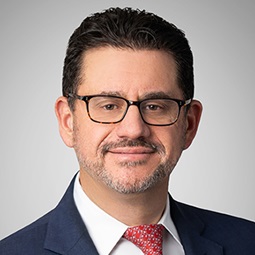The most recent decision in the ongoing Sun Capital litigation provides some welcome relief for private equity sponsors invested in portfolio companies subject to pension withdrawal liability. On November 22, 2019, the U.S. Court of Appeals for the First Circuit reversed the 2016 decision of the Federal District Court of Massachusetts that held that two non-parallel investment funds (Sun Capital Partners III and Sun Capital Partners IV) were jointly and severally liable for the multiemployer pension withdrawal liability owed by a portfolio company, Scott Brass, Inc. Notably, however, the First Circuit declined to comment on whether a single private equity fund that invested in a portfolio company managed by the fund’s general partner could be a “trade or business” under ERISA.
As reported in our April 2016 alert and August 2013 alert, the Sun Capital litigation concerns whether two Sun Capital funds – one holding a 70% ownership interest and the other a 30% ownership interest in a bankrupt portfolio company – may be subject to a portfolio company’s multiemployer pension withdrawal liability under the Multiemployer Pension Plan Amendments Act of 1980 (MPAA). Under the Sun Capital facts, following the bankruptcy, the pension fund assessed withdrawal liability against both Sun Capital funds on the basis that both Sun Capital funds were members of the portfolio company’s “controlled group” and were jointly and severally liable for the withdrawal liability. Under ERISA rules, entities that are each a trade or business and at least 80% related to each other are part of the same “controlled group.”
In a prior decision, the First Circuit held that at least one Sun fund was a “trade or business” and had remanded to the District Court the question of whether the funds and the portfolio company were at least 80% related to each other. On remand, the District Court held that the Sun funds formed a “partnership in fact” and thus their aggregate ownership of the portfolio company exceeded the 80% ownership threshold, making the Sun funds part of the portfolio company’s controlled group and jointly and severally liable for the pension withdrawal liability. The First Circuit has now reversed the District Court decision.
In reversing the District Court’s earlier “partnership in fact” determination, the First Circuit has now concluded that Congress did not intend to impose liability in the Sun Capital funds scenario. This decision provides welcome relief for private equity sponsors invested in portfolio companies with pension liabilities. In particular, this development should assuage withdrawal liability concerns for private equity sponsors investing through multiple non-parallel funds with an aggregated 80% ownership in portfolio companies.
However, this decision does not reverse the First Circuit’s earlier determination that a private equity fund could be a “trade or business.” It remains to be seen whether the First Circuit would hold in future litigation that a single private equity fund with an ownership interest of over 80% in a distressed portfolio company would be liable for withdrawal liability. In actions filed in jurisdictions where the First Circuit’s decision is not binding authority, in disputes involving Trilantic Capital Partners, a single private equity fund’s liability for multiemployer and single-employer pension plan liability is at issue. As these issues continue to wind their way through the courts, private equity sponsors should continue to have heightened focus when investing in portfolio companies that contribute to multiemployer or sponsor single-employer defined benefit pension plans.
Contributor(s)












